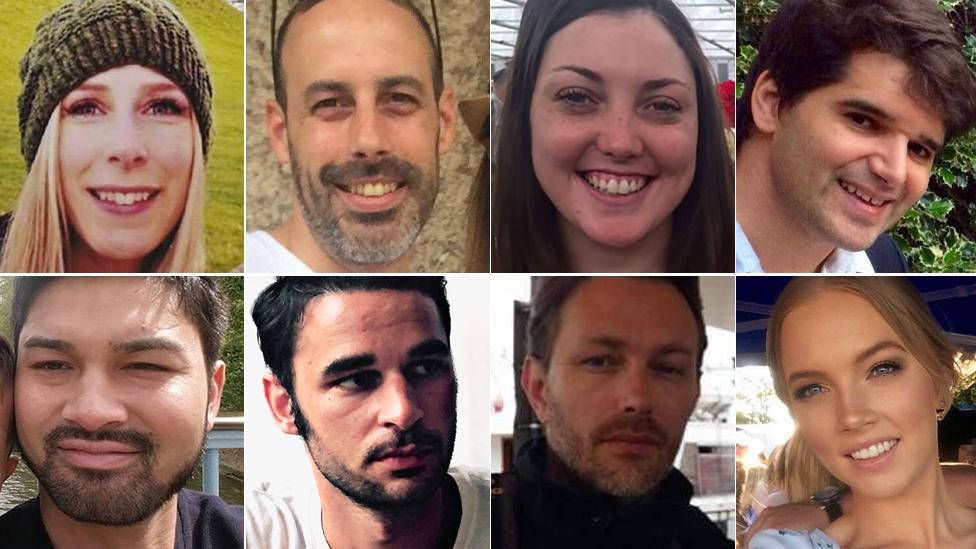London Bridge attack inquest: Police feared 'Mumbai-style' attack
- Published
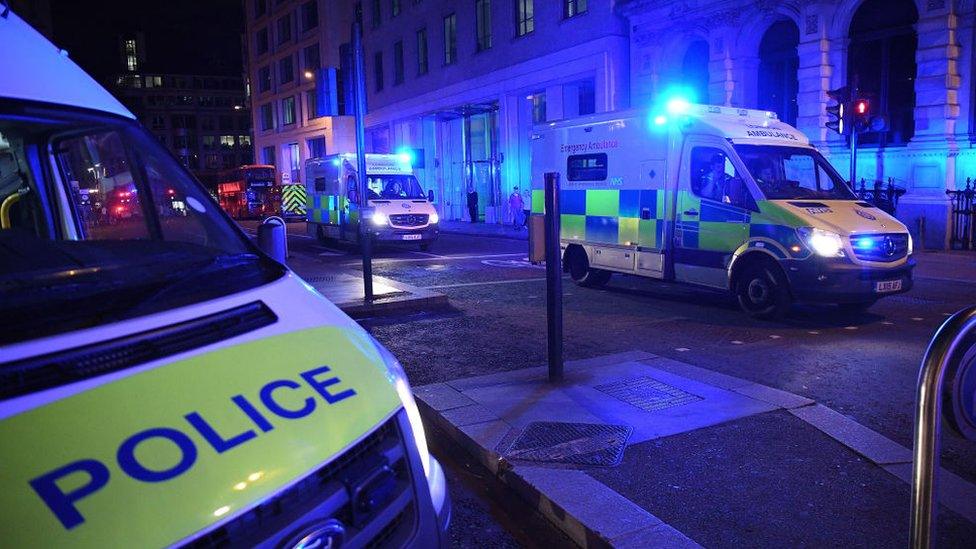
An "unprecedented" number of calls from the public during the London Bridge killings left police thinking they may be facing a "Mumbai-style" attack.
The inquest into the attack heard there were more than 500 unverified reports, including claims of sustained gunfire and hostage-taking.
Officers feared co-ordinated shootings and bombings, as in the 2008 killings in India.
Eight people were killed with a van and knives in the 2017 London attack.
In the space of three minutes the attackers struck Xavier Thomas, 45, and Christine Archibald, 30, with a van on the bridge, before fatally stabbing Alexandre Pigeard, 26, Sara Zelenak, 21, Kirsty Boden, 28, Sebastien Belanger, 36, James McMullan, 32, and Ignacio Echeverria, 39, around Borough Market.
Another 48 people were injured in the killings on 3 June 2017.
Ten minutes after Khuram Butt, 27, Rachid Redouane, 30, and Youssef Zaghba, 22, had begun their assault, they were shot dead by firearms officers.
Supt Ross McKibbin, who led the first few hours of the police investigation, told the inquest at the Old Bailey officers initially believed there was "a potential" that more than three suspects might have been involved.
As the "chaotic" information came in, they also feared that there could have been suicide bombs in use, he said.
"We have got members of the public calling us about things they can hear rather than see, so they think they are under sustained gunfire," said the officer, who is part of the Specialist Firearms Command.
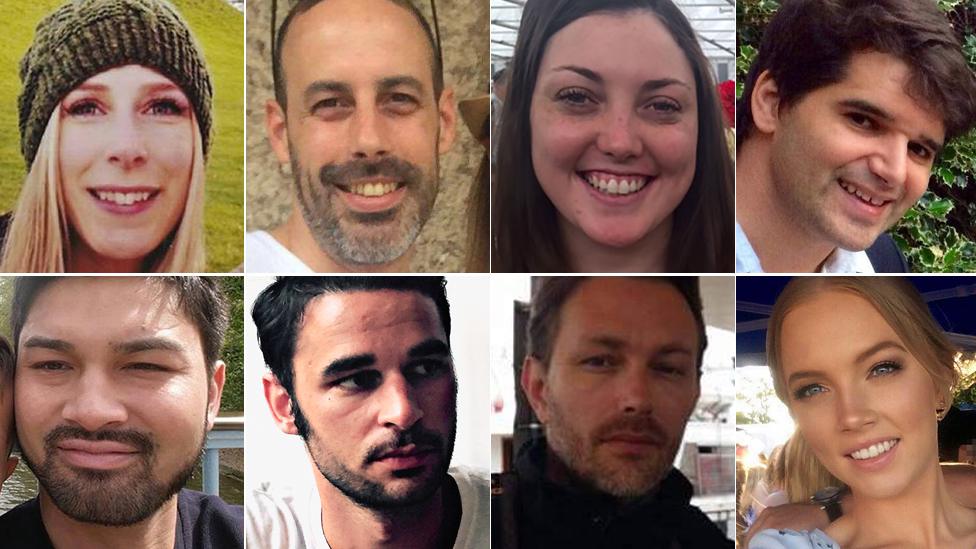
The victims of the London Bridge attack (clockwise from top left): Christine Archibald, Sebastien Belanger, Kirsty Boden, Ignacio Echeverria, Sara Zelenak, Xavier Thomas, Alexandre Pigeard, James McMullan
Among the calls on the night of the attacks were reports of a shooting in the Elephant and Castle area, the inquest heard.
Supt McKibbin said these reports were false but "these are not people who were trying to divert resources, these are people who felt they were genuinely under attack".
The November 2008 attacks in Mumbai involved a series of co-ordinated shootings and bombings at luxury hotels and the city's largest train station, killing 166 people.
Asked if police feared a similar incident might be unfolding on the night of the London Bridge attacks, Supt McKibben said: "Absolutely."

At the inquest
Hanna Yusuf, BBC News
Leading the initial police response to the attack, Supt Ross McKibbin had seen the "carnage" unfolding on London Bridge via CCTV footage from the roof of St Thomas' Hospital.
In court, he said the Met Police and City of London forces were overwhelmed by the amount of information that came in on that night.
He repeatedly described what he and his force witnessed as "chaos", saying that it was "effectively a war zone on the streets of London".
Police, he said, received more than 500 pieces of unverified information over the phone - an unprecedented number of calls about a single incident.
He emphasised the fact that this was an "extremely complex policing operation" when pressed by lawyer Gareth Patterson on why ambulances did not locate victims faster.
"It was without a doubt the single most challenging shift I have experienced in 24 years of operational policing," said Supt McKibbin.

Supt McKibbin also offered "sincere condolences" to the parents and fiancee of Xavier Thomas for not being able to save his life.
Police treating casualties of the attacks did not have the technology to see the locations of ambulances and were unaware they were waiting in a safe place nearby, he said.
Some victims waited 25 minutes to be treated by paramedics.
He told the inquest there was "absolutely" a case for giving police equipment that would allow them to see the location of ambulance personnel or vehicles.
The inquest continues.
- Published7 June 2019
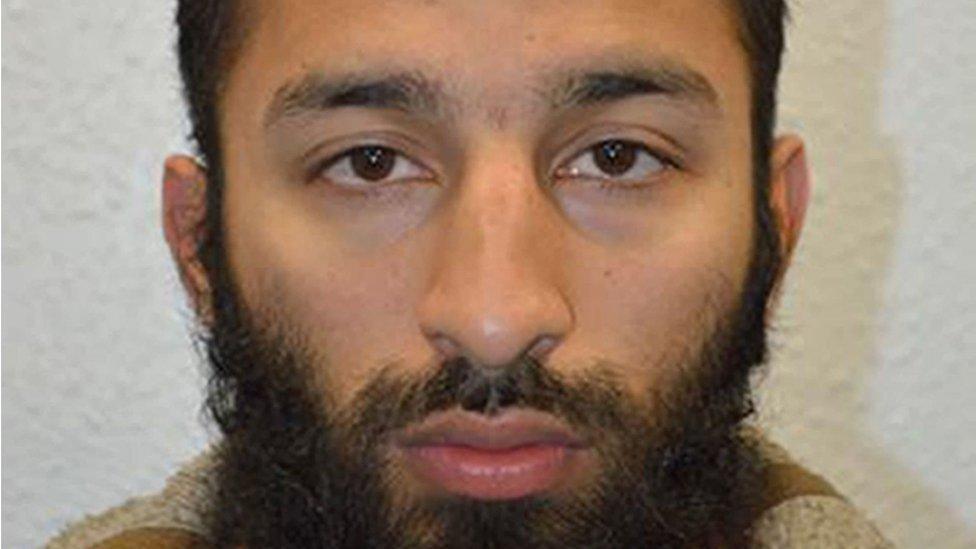
- Published6 June 2019

- Published5 June 2019
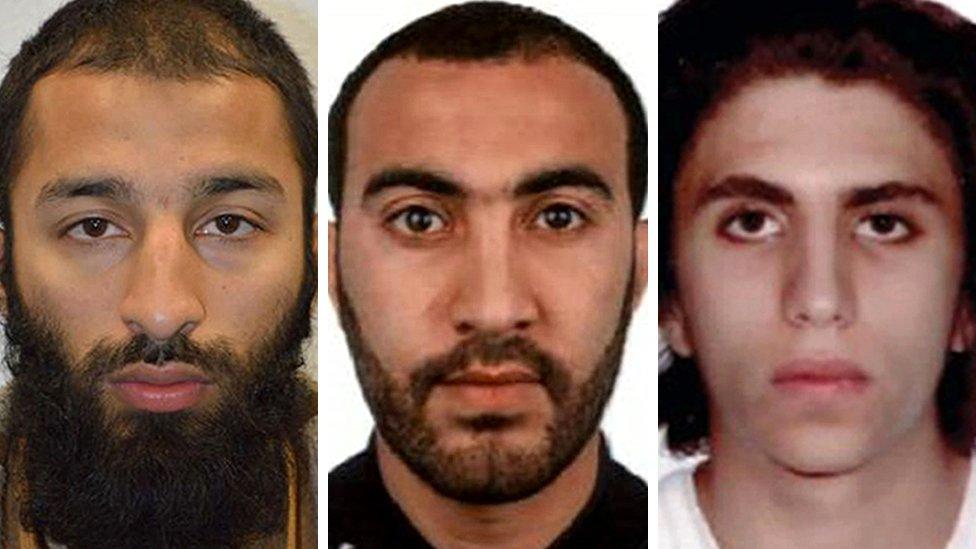
- Published31 May 2019

- Published29 May 2019
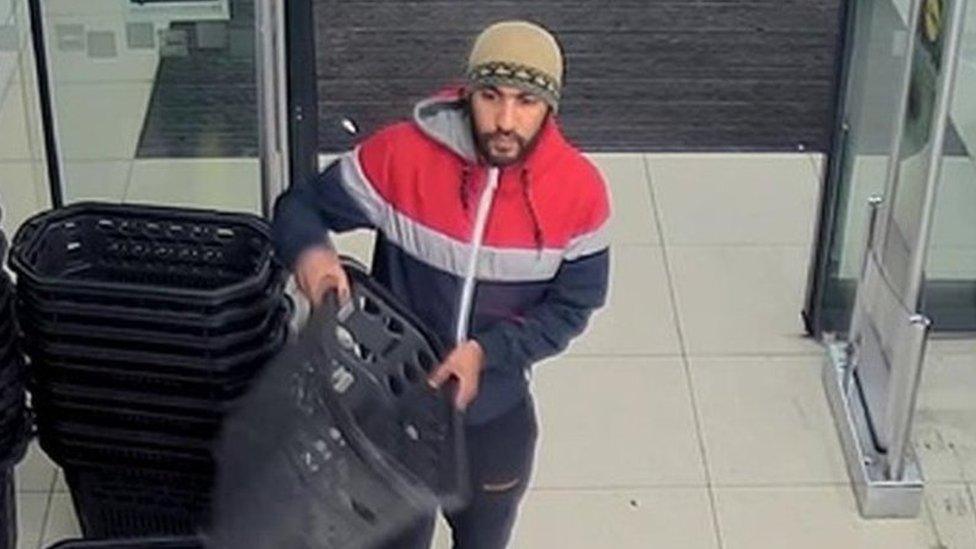
- Published22 May 2019
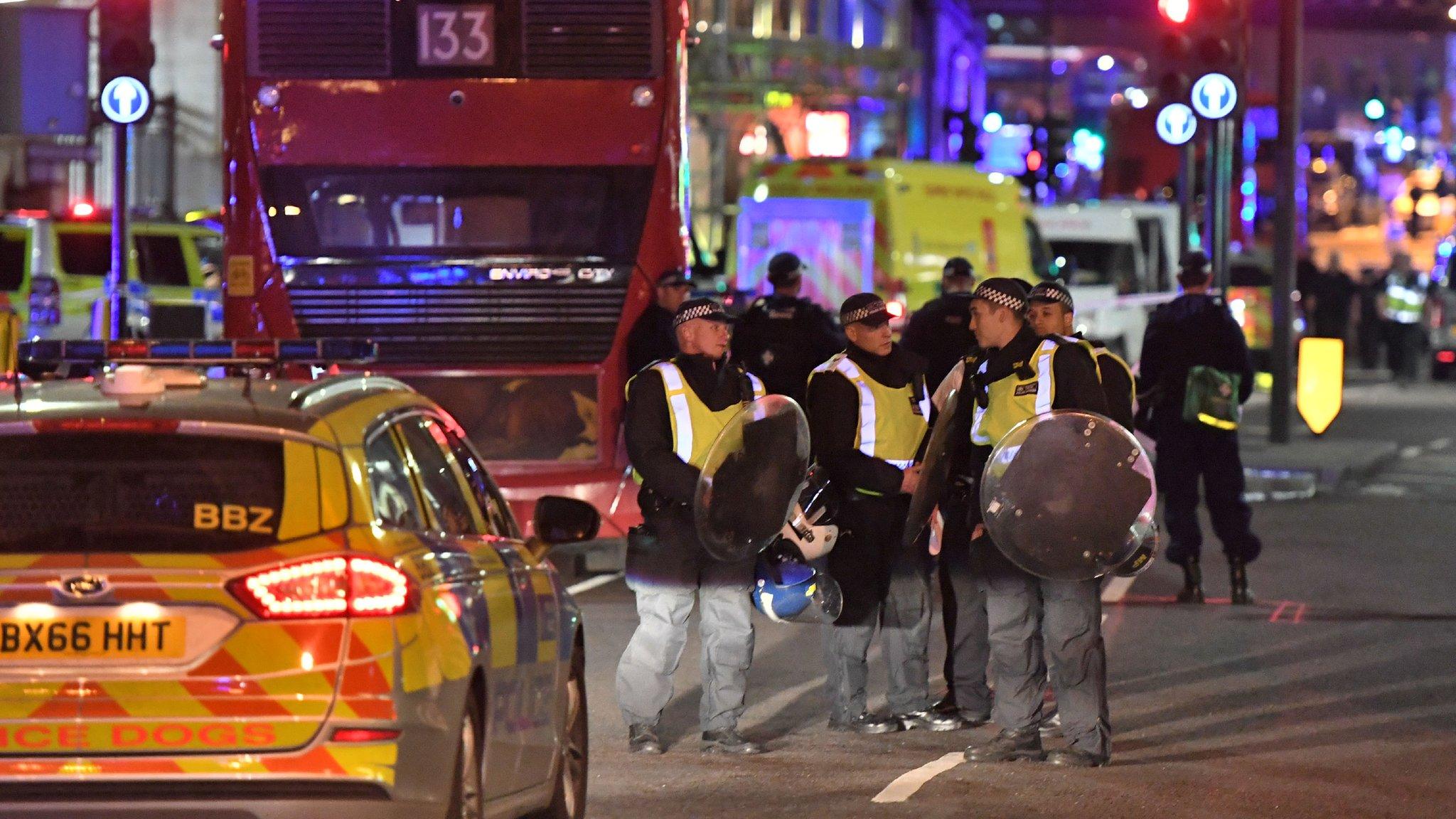
- Published16 May 2019
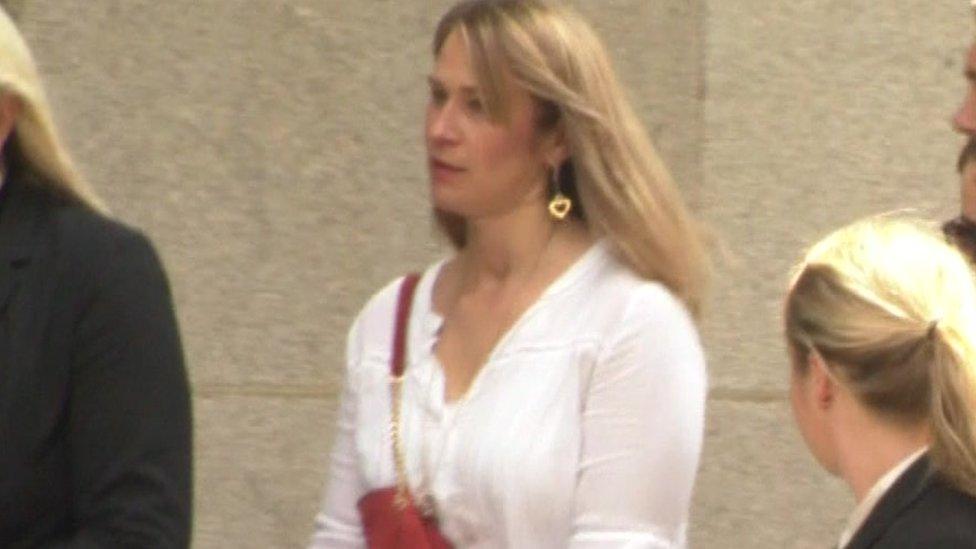
- Published9 May 2019
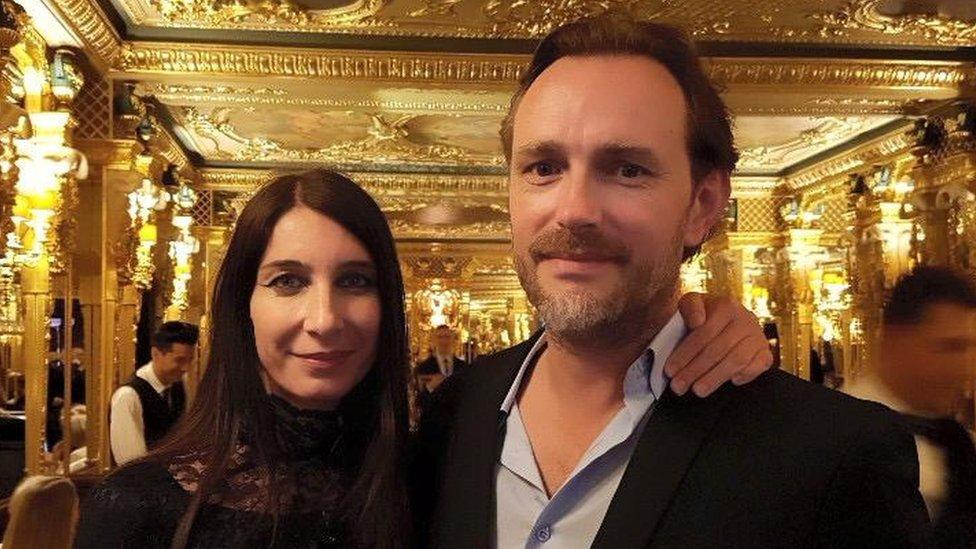
- Published22 May 2019
